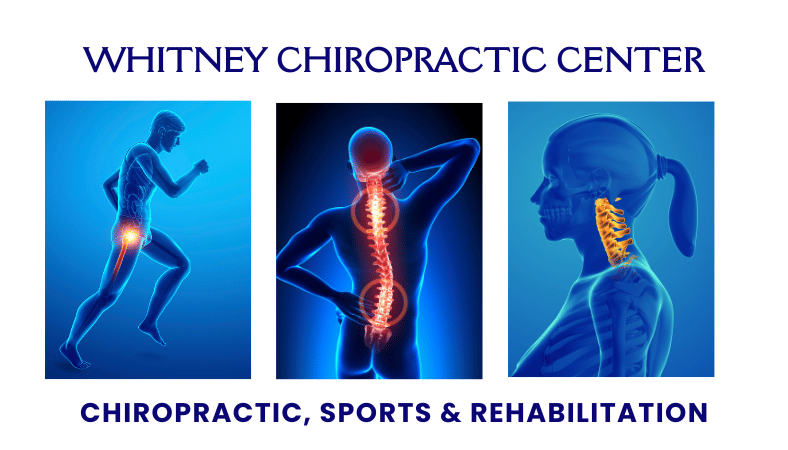-
Can chiropractic care improve my posture?
Yes! Chiropractic adjustments, paired with posture-focused exercises, can help align your spine and improve posture over time.
-
Do you treat patients with scoliosis?
2.
Absolutely. We provide care plans that may help manage scoliosis-related discomfort and improve spinal function.
-
Can chiropractic adjustments help with sleep issues?
3.
Many patients report better sleep following chiropractic care due to reduced pain and nervous system regulation.
-
Is chiropractic care helpful during pregnancy?
Yes. We offer prenatal chiropractic care designed to ease discomfort, support pelvic alignment, and promote a healthier pregnancy.
-
What should I expect during my first visit?
Your initial visit includes a comprehensive consultation, examination, and possibly digital X-rays. Dr. Whitney will then discuss a tailored treatment plan with you.
-
What conditions can acupuncture help with?
Acupuncture can assist with various issues, including chronic pain, migraines, stress, and digestive disorders. It's often used alongside chiropractic care for enhanced results.
-
How soon after an auto accident should I see a chiropractor?
It’s best to schedule an appointment as soon as possible—even if you feel fine—since some symptoms may appear days later.
-
Do you offer spinal decompression therapy?
6.
Yes. Spinal decompression is available to help relieve pressure on discs and nerves, especially for those with herniated discs or chronic back pain.
-
Can chiropractic care help with TMJ (jaw) pain?
7.
Yes. Adjustments and muscle therapy may reduce TMJ-related tension, discomfort, and jaw misalignment.
-
What is the “popping” sound during an adjustment?
8.
That sound is gas being released from the joint, similar to cracking knuckles. It’s harmless and often provides relief.
-
Is there an age limit for chiropractic care?
10.
No—chiropractic care is suitable for all ages, from infants to seniors. Techniques are always tailored to age and condition.
-
Can chiropractic care help with sciatica?
11.
Yes. We frequently help patients find relief from sciatica through adjustments that relieve pressure on the sciatic nerve.
-
What’s the difference between chiropractic care and physical therapy?
12.
While both address musculoskeletal concerns, chiropractic focuses on spinal alignment and nervous system health. We often integrate aspects of both in our treatment plans.
-
Can I get adjusted if I’ve had back surgery?
13.
Possibly. We perform a thorough evaluation and only provide care if it's safe and appropriate post-surgery.
-
Will I be sore after my adjustment?
Some mild soreness is normal, especially after your first few visits, but it usually subsides quickly—like after a good workout.
-
Do you use instrument-assisted adjustments?
15.
Yes. We use a variety of techniques, including gentle, instrument-assisted adjustments for patients who prefer a low-force approach.
-
Can chiropractic care help with carpal tunnel symptoms?
17.
In many cases, yes. We evaluate the entire nerve pathway and may use adjustments and muscle therapy to relieve symptoms.
-
Do you offer ergonomic advice for work or home?
16.
Definitely. We provide personalized ergonomic guidance to help reduce strain and support long-term spinal health.
-
How do I know if chiropractic care is right for me?
Start with a consultation. We’ll evaluate your health history and goals to determine if care at our clinic is a good fit.


